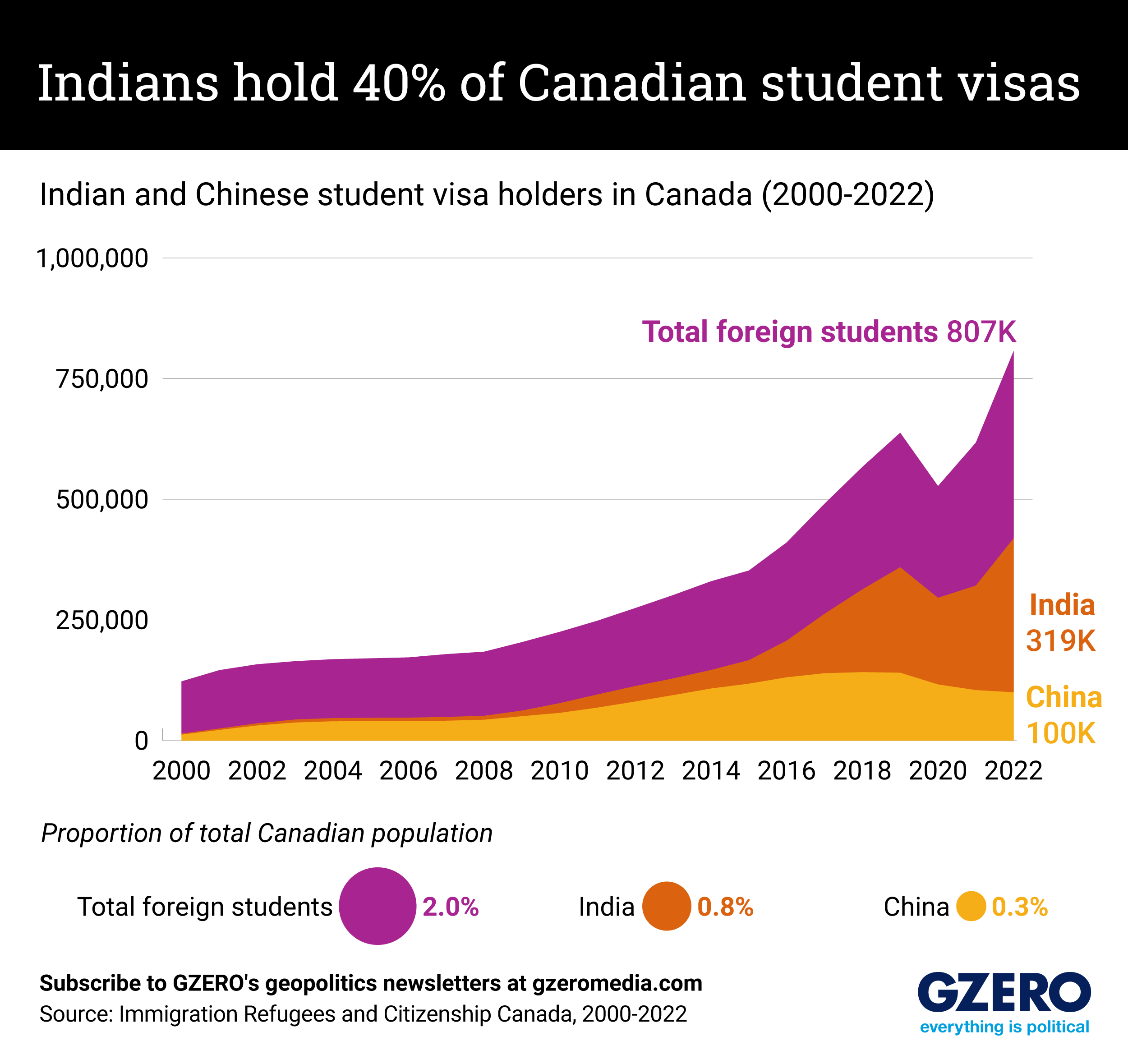The Graphic Truth: Indians hold 40% of Canadian student visas
The fallout from allegations that India was behind the assassination of Hardeep Singh Nijjar has thrown Indo-Canadian relations into the lurch. Each side has expelled a diplomat from the other, and India’s Embassy in Canada stopped processing visas – a serious diplomatic gesture, no doubt, but the material impacts are likely to be small. Only around 80,000 Canadians visited India in 2021 out of more than 1.5 million foreign tourists.
But if Canada responds in kind, it will be a very different story. Indian students represent a staggering 40% of the 807,000 foreign student visa holders in Canada, more than every other nationality combined save China. The number of Indians studying in the Great White North skyrocketed from just 2,210 in 2000 to 171,505 in 2018 — also the year Indian students first outnumbered Chinese students. Their population has since nearly doubled, and Indian students now represent approximately 0.8% of the entire population of Canada.
Here’s the twist: Even before the row over Nijjar’s murder, Canada was seriously considering capping student visas. The country is in the midst of a severe housing shortage, and efforts to alleviate the situation are falling short. The province of Ontario needs to build around 150,000 new houses every year for the next several years to rectify the situation — and they’re managing around 40,000. Capping the number of foreign students competing for limited housing might be politically expedient, but it would be a devastating blow to the Canadian universities that depend upon international tuition rates.
